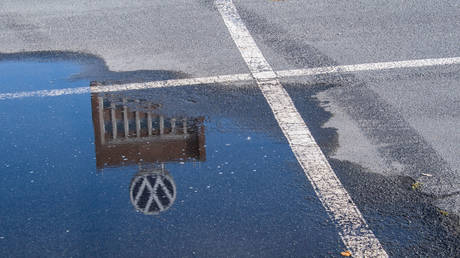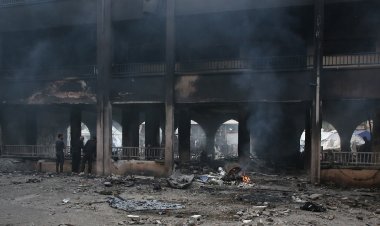Volkswagen reportedly planning significant reductions in Germany – media
Volkswagen is set to shut down multiple car manufacturing plants and reduce its workforce as part of a cost-cutting strategy, pointing to a challenging economic environment.. source:TROIB RTS

As recently as 2017, Volkswagen was recognized as the world's top car seller. The company's portfolio includes various auto, truck, and motorcycle labels like Audi, Bentley, Lamborghini, SEAT, Skoda, Porsche, Scania, and Ducati.
Oliver Blume, the CEO of the VW Group, attributed the decision to a "difficult economic environment" and the "failing competitiveness of the German economy."
"The situation is extremely tense and cannot be overcome by simple cost-cutting measures,” VW brand head Thomas Schaefer said in a statement on Monday.
The firm also aims to abolish its job security program to achieve a cost reduction target of €10 billion by 2026, according to company executives.
Discussions are expected with the Works Council, the labor union, which has already promised "fierce resistance" to the proposals.
The Works Council has identified that Volkswagen is considering the closure of one major vehicle production site and a component plant in Germany. The IG Metall labor union has deemed the announcement reckless and asserted that the strategy compromises the stability of Germany’s largest industrial employer.
Daniella Cavallo, head of the Works Council, expressed on the company intranet that the management has historically made poor choices by neglecting investments in hybrid technologies and cost-effective electric vehicles.
Cavallo also argued against what she called the company’s “documentation madness” and “salami-slicing tactics,” advocating for a simplification of operations and better utilization of brand synergies, as reported by Reuters.
Meetings between Chief Financial Officer Arno Antlitz, Schaefer, and the Works Council are planned, with expectations for Blume’s involvement, as per Cavallo's comments.
The potential impact on Germany’s automotive industry comes in the wake of warnings last year from the German Association of the Automotive Industry about the nation’s sharply declining global competitiveness, exacerbated by high energy prices. Russian President Vladimir Putin also remarked on the adverse effects of Western sanctions against Moscow, predominantly affecting Berlin’s industry.
The disclosure by Volkswagen, according to Bloomberg, poses an additional challenge for German Chancellor Olaf Scholz following his coalition's disappointing performance in recent regional elections in Thuringia and Saxony.
Following the announcement, Volkswagen shares spiked, with a notable rise to €98.60 per share on Monday, marking an increase of 2.57%.
Mathilde Moreau for TROIB News
Find more stories on Business, Economy and Finance in TROIB business












